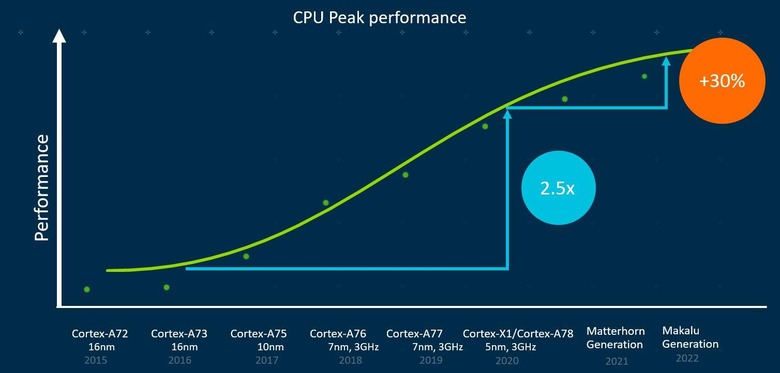ARM Cortex-A Chips Dropping 32-Bit Support Could Cull Old, Unmaintained Apps
Not too long ago, Apple made a big fuss over going 64-bit only on iOS and for good reason. It meant that developers had to update their apps or else they will no longer work on future versions of iOS and iPhone models. That same situation will soon be upon Android developers now that ARM has announced it will be dropping 32-bit support from its high-end Cortex-A design completely in two years. This, in turn, could see some unmaintained but still used app eventually fade from existence.
To be clear, ARM will only be removing 32-bit support from its high-performance "big" chips, leaving the "LITTLE" ones with legacy support for such software. Considering the big.LITTLE architecture many ARM-based chips employ, however, the situation might be a bit more complicated and higher-end processors could end up not supporting 32-bit code completely.
As always, the motivation for moving to 64-bit exclusively is for performance and efficiency. 64-bit systems have performance advantages over the older 32-bit architecture but supporting both only increases the maintenance work needed and bogs down the hardware unnecessarily. Starting 2022, the Cortex-A "big" cores won't even bother supporting code written specifically for 32-bit CPUs.

The effects of this change on Android won't be as sudden and drastic as Apple's shift. Android itself is already 64-bit and Google has been requiring new Google Play Store app submissions to be likewise. There are, however, still a host of Android apps that still work today but have not been updated to for 64-bit architecture. All that they might need is to recompile and rebuild for a more recent Android release but that won't happen if the app hasn't been touched in years anyway.
These apps could then suddenly stop working on new phones released in 2022, which, admittedly, gives developers a lot of time to prepare, presuming they're still around. Of course, it will also only affect new, higher-end phones using these new ARM chips. Whether Qualcomm will follow suit with its custom Kryo cores still remains to be seen.
